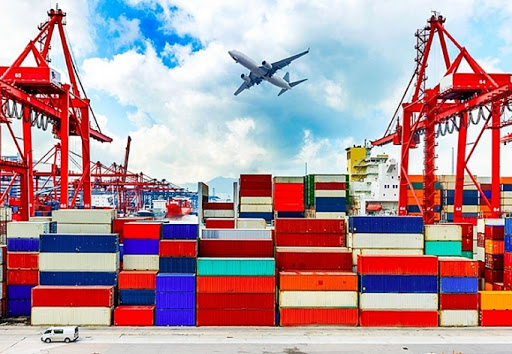Understanding the College and Intermediate Levels of the Logistics Sector
On December 28, 2018, the Minister of Labor, War Invalids and Social Affairs issued Circular 56/2018/TT-BLDTBXH stipulating the minimum volume of knowledge and competency requirements that learners must achieve upon graduation at the intermediate level and college level in the fields of transportation services, environment, and security.

Understanding the Logistics industry at college and intermediate levels (Illustrative image)
To be specific, Circular 56/2018/TT-BLDTBXH stipulates that Logistics is a broad industry, involving the planning, execution, and control of a chain of activities from production, supply to the consumer, including: packing, packaging, loading and unloading, warehousing, goods preservation, transportation, delivery, document preparation... Workers in the Logistics profession can participate in the logistics activity chain with related jobs such as: logistics administration, goods delivery, general goods loading and unloading, warehouse operations, warehouse supervision. The college and intermediate levels of the Logistics industry are understood as follows:
- College-level Logistics is a profession controlling the flow of goods, energy, information, and other resources such as products, services, and people, from the supply of input factors for the production process to the distribution of output products, meeting level 5 requirements in the Vietnam National Qualifications Framework. Minimum knowledge volume: 1,895 hours (equivalent to 68 credits).- Intermediate-level Logistics is a profession controlling the flow of goods, energy, information, and other resources such as products, services, and people, from the supply of input factors for the production process to the distribution of output products, meeting level 4 requirements in the Vietnam National Qualifications Framework. Minimum knowledge volume: 1,400 hours (equivalent to 50 credits).
Furthermore, the primary jobs in the profession are mainly carried out at production and business establishments, warehouses, and ports; involving adherence to many procedures and regulations; effective use of facilities; ensuring safety and security. High work intensity, under significant time pressure, and the requirement to ensure progress, closely coordinating with related departments. To effectively perform tasks, essential working conditions must be ensured, such as comprehensive and clear procedures and regulations; good facilities, application of technology, software; an effective organizational structure ensuring smooth information flow.
To practice the profession, workers must have good health, good professional ethics, sufficient specialized knowledge and professional skills that meet the job position requirements. In addition, it is necessary to continuously study to improve specialized knowledge, expand social knowledge; practice carefulness, build awareness, and passion for the profession.
Details can be found at Circular 56/2018/TT-BLDTBXH effective from February 10, 2019.
Ty Na
- Objectives and roadmap for the development of the semiconductor industry in Vietnam until 2050
- Latest regulations on internal transactions in cooperatives in Vietnam
- To resolve issues related to the quotas of land used for transport in Vietnam
- Economic-technical norms under the scope of local land management in Vietnam
- Directive on adjusting audit activities due to the impact of No. 3 typhoon in Vietnam
- Standards for promotion to Class I cinematographers in Vietnam from November 07, 2024
-

- Guidance on registration of securities with Vietnam ...
- 19:00, 26/09/2024
-

- Procedures for settlement of land disputes under ...
- 18:30, 26/09/2024
-

- Objectives and roadmap for the development of ...
- 18:00, 26/09/2024
-

- Latest regulations on internal transactions in ...
- 17:30, 26/09/2024
-

- Notable documents of Vietnam in the previous week ...
- 17:10, 26/09/2024
 Article table of contents
Article table of contents
